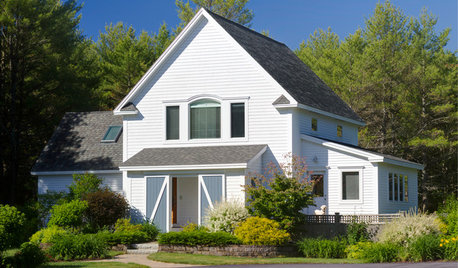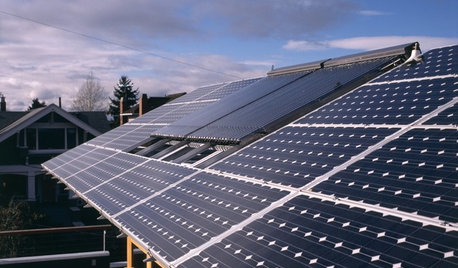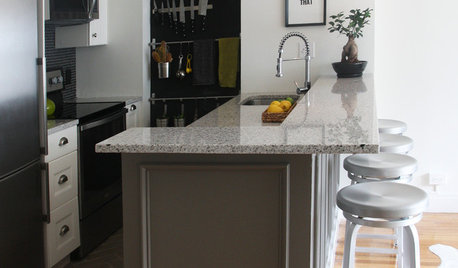Don't Prepay Your Mortgage [Consumer Reports]
dave_donhoff
16 years ago
Related Stories

MOVINGTips for Winning a Bidding War in a Hot Home Market
Cash isn’t always king in a bidding war. Get the home you want without blowing your budget, using these Realtor-tested strategies
Full Story
MOVINGWhat Those Home-Sale Disclosures Are Really Saying
Avoid costly surprises by knowing what’s included in a home seller’s disclosure, what’s not and what you can do if you suspect foul play
Full Story
REMODELING GUIDES5 Ways to Protect Yourself When Buying a Fixer-Upper
Hidden hazards can derail your dream of scoring a great deal. Before you plunk down any cash, sit down with this
Full Story
GREEN BUILDINGLet’s Clear Up Some Confusion About Solar Panels
Different panel types do different things. If you want solar energy for your home, get the basics here first
Full Story
REMODELING GUIDESWhat to Know About Budgeting for Your Home Remodel
Plan early and be realistic to pull off a home construction project smoothly
Full Story
GREEN BUILDINGHouzz Tour: See a Concrete House With a $0 Energy Bill
Passive House principles and universal design elements result in a home that’ll work efficiently for the long haul
Full Story
BEFORE AND AFTERSA Boston Kitchen and Bath Go From Dreary to Darling
See how a $25,000 renovation budget gave 2 outdated spaces in a small Massachusetts apartment a brand-new look
Full Story
MOVINGHome-Buying Checklist: 20 Things to Consider Beyond the Inspection
Quality of life is just as important as construction quality. Learn what to look for at open houses to ensure comfort in your new home
Full Story
PAINTINGBulletproof Decorating: How to Pick the Right Kind of Paint
Choose a paint with some heft and a little sheen for walls and ceilings with long-lasting good looks. Here are some getting-started tips
Full Story
SELLING YOUR HOUSEA Moving Diary: Lessons From Selling My Home
After 79 days of home cleaning, staging and — at last — selling, a mom comes away with a top must-do for her next abode
Full StorySponsored
Industry Leading Interior Designers & Decorators in Franklin County
More Discussions



western_pa_luann
dave_donhoffOriginal Author
Related Discussions
Meile gas cooktop vs Consumer Reports
Q
Consumer Reports Toilet Reviews-American Standard & Kohler On Top
Q
Consumer Reports Tests Dishwasher Soaps
Q
Consumer reports makes me feel like I can't buy a top loader wash
Q
chelone
western_pa_luann
demeron
chelone
Jonesy
Jonesy
Jonesy
joyfulguy
sonopoly
dave_donhoffOriginal Author
JustTrees
marge727
dave_donhoffOriginal Author
behaviorkelton
harriethomeowner
cheerful1_gw
harriethomeowner
marge727
dave_donhoffOriginal Author
celticmoon
marge727
chelone
dadoes
C Marlin
harriethomeowner
peegee
dave_donhoffOriginal Author
harriethomeowner
peegee
harriethomeowner
dave_donhoffOriginal Author
peegee